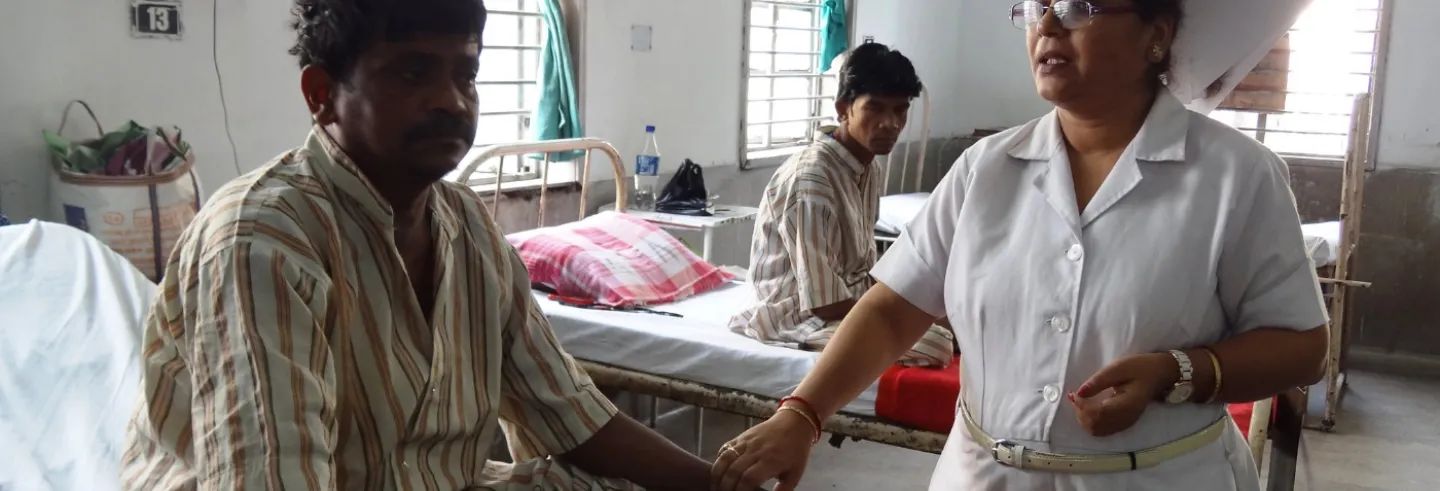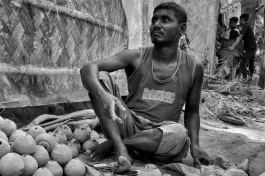The last day of February every year is observed as Rare Disease Day to raise awareness about rare diseases. It is crucial to recognise that this is not merely about acknowledging the rarity of these conditions but also about appreciating the often overlooked struggles endured by those who suffer from them. In a personal reflection, this article points to the absence of compassion in healthcare—something that casts a shadow over the struggle of patients already battling against the odds.
Rare Hormonal Disorder
After enduring persistent headaches, fatigue, and noticeable changes in my physical appearance for almost five years (including a protruding jaw and a herniated vertebral disc, commonly known as a slipped disc), alongside difficulties in concentrating and neuropathy, I was diagnosed with a rare hormonal disorder known as acromegaly in 2010. My sleep patterns were severely disrupted, and I often found myself awake until the early hours of the morning. I was 33 years old and despite my background in medicine and public health, it took an arduous journey to uncover the root cause of my symptoms.
Numerous visits to healthcare professionals since 2004 had yielded no suspicion of a rare disease. When seeking help for my slipped disc in 2006, an orthopaedic doctor had noted unusual findings in my spine but did not delve deeper. It was not until I decided to go to a neuro-physician because I suspected that there was something wrong with my brain that the diagnosis of acromegaly emerged.
Each story unveils an arduous journey by individuals battling acromegaly, often including years of uncertainty and anguish before the cause of their suffering is uncovered.
Acromegaly arises from the overproduction of growth hormone (GH) in the pituitary gland, a small structure at the brain’s base. This excessive secretion of GH is commonly triggered by the presence of a non-cancerous tumor known as a pituitary adenoma. My medical training provided me with insights into the workings of the body, yet, even with this, the rarity of acromegaly ensured it was not initially considered.
A delayed diagnosis of acromegaly resonates deeply with patients worldwide. It is echoed in the narratives written by people living with acromegaly in the book Alone in my Universe: Struggling with an Orphan Disease in an Unsympathetic World, a collection curated by Wayne Brown. Each story unveils an arduous journey by individuals battling acromegaly, often including years of uncertainty and anguish before the cause of their suffering is uncovered. While such delayed diagnoses are an important issue, this article aims the spotlight on a different aspect of the condition.
Healthcare Providers
During my 13-year journey with acromegaly, I encountered numerous healthcare providers, each encounter leaving behind a trail of disbelief, scepticism, and lingering trauma in me. Why do interactions with your healthcare providers have to be frustrating or even traumatising? Is it because of the rarity of the disease? Is it because they are not up to date with the latest research and information? Maybe it is because doctors in India are often overwhelmed with their busy schedules, leaving them with little time to provide thorough explanations. But I think it is because they lack compassion. It is important to note that all the doctors I interacted with were highly qualified, ethically sound, and clinically adept.
What happened during my doctor’s visits that led to these emotions? Having endured the consequences of a missed diagnosis for far too long, I made it a point to meticulously report every symptom during consultations and query every possibility, backing it with the recent research I had read. However, I often witnessed a silent struggle unfolding between me, ready with my research, and the doctors, shielded by their expertise and unwilling to acknowledge that a patient could know more than them.
For someone like me who gathered information by spending relentless hours scouring medical literature and talking to fellow patients worldwide online, these encounters were depressing. Despite my efforts, the response from many doctors was dishearteningly dismissive. It was as if listening to what I knew to be the latest research was a threat to their status as “experts”. Instead of engaging in any meaningful dialogue, I found myself met with silence or, worse yet, a prescription for an anti-anxiety or anti-depression medication. It seemed that the prevailing belief among doctors was that less talk equated to greater talent.
There were instances where treatment options were inadequately provided, with little discussion on the merits and drawbacks of specific treatments, or on the exploration of non-pharmaceutical approaches to enhancing health.
I vividly recall a moment when I questioned a doctor about not prescribing a Sandostatin injection, a crucial treatment for high growth hormone levels. Despite clinical trials demonstrating its efficacy in reducing mortality, he brushed off my concerns, citing the financial burden. It blew my trust and left me feeling unheard and unsupported. Determined, I researched and discovered a more affordable Indian-produced alternative. Yet, even as I pushed for a prescription, the lack of transparency and communication regarding potential side effects further eroded my trust.
Later on, I came in contact with a couple of more people with acromegaly in India through Facebook. We now have a WhatsApp group of 12 people living with acromegaly in India and we support each other. The questions asked in the group are sometimes as basic as what treatment options are available. What tests should be done to follow up? How will the disease progress? It is evident that they have not had conversations with their healthcare providers that adequately address their questions and make them feel at ease.
There were instances where treatment options were inadequately provided, with little discussion on the merits and drawbacks of specific treatments, or on the exploration of non-pharmaceutical approaches to enhancing health. In the face of these challenges, many of us have learned to navigate the healthcare system with resilience and determination. However, the scars of these encounters serve as a reminder of the critical need for empathy, communication, and partnership between patients and healthcare providers.
It might seem that doctors lacked updated information because of the rarity of the disease and this contributed to a perceived lack of compassion. While educating doctors about rare diseases through continued medical education may seem like a policy intervention, its effectiveness is doubtful if the number of cases is very small. However, compassion extends beyond mere expertise and information. Doctors possess the means to acquire new information—all they need is empathy, respect, and genuine care. It is not just about expertise. It is about compassion and the courage to sometimes admit, “I don’t know, but let’s find out together what is best to be done.”
Patient Engagement
While treatment and medical care play pivotal roles for individuals with rare diseases, they are not a panacea. Equally significant are the many concerns accompanying a diagnosis—such as an individual’s ability to pursue aspirations and goals, its effect on family dynamics and children, and the development of coping strategies to navigate uncertainties. These factors profoundly influence a person’s day-to-day life with a rare disease. All these concerns are not automatically taken care of by being treated.
The National Policy of Rare Diseases recognises that there is a lack of epidemiological data about rare diseases in India and that the definition of a rare disease is not yet available in the country.
For example, I took all the possible treatments for acromegaly—undergoing surgery, taking radiation, and then monthly injections to keep the growth hormone under control. My acromegaly has been “cured” (under control without any medication) in the last eight years. However, I still suffer from muscle plain, neuropathy, low-energy, heart issues (cardio-myopathy) and mental health issues, which affect my daily life. Therefore, it is essential for any policy on rare diseases to prioritise improving the quality of life of patients.
India unveiled its National Policy of Rare Diseases (NPRD) in 2021, marking a milestone in addressing the challenges faced by individuals and families grappling with rare diseases. While the policy recognises the immense health burden imposed by rare conditions, it falls short of embracing a truly holistic approach to mitigating their adverse impacts.
The NPRD recognises that there is a lack of epidemiological data about rare diseases in India and that the definition of a rare disease is not yet available in the country. While the World Health Organization defines a rare disease as a debilitating lifelong disease or disorder with a prevalence of one or less per 1,000 population, many countries have adopted different definitions. As of now, India relies on a list of rare diseases curated by a group of “experts” based solely on their clinical experience. Acromegaly does not appear on the list though recent research has estimated the prevalence of acromegaly to be six per 100,000 people.
The NPRD classifies rare diseases into three categories:
1) Disorders amenable to one-time curative treatment.
2) Diseases requiring long-term/lifelong treatment that costs relatively less and whose benefit has been documented in the literature. Annual or more frequent surveillance is required.
3) Diseases for which a definitive treatment is available but there are challenges in making the best choice, given that the therapy is very costly and that it is for life.
It is clear that the categorisation predominantly focuses on the treatment options. There are more than 7,000 rare diseases, and having cures and treatments for all of them is highly unlikely, at least in the near future. So, along with focusing on the diseases where definitive treatments are available and where prevention efforts can be made through prenatal screening, can the policy think of what it can offer to everyone living with a rare disease to improve their daily lives? Can the policy put people, and not their diseases, at the centre?
What truly matters is whether healthcare professionals understand the nuances of our condition, if viable treatments are available that are accessible and affordable, and, most importantly, if we feel validated and supported within the medical community.
If so, the policy would have sections on how to provide platforms for people to gain strength from each other, on what health system could help them lead better lives, on how people can be involved in building a repository of knowledge about the disease, on how their voices can be heard, and on how digital technologies can be used to provide resources to patients as well as their care providers. It is not impossible to design these systems, but it is only possible if people’s well-being is prioritised.
Undoubtedly, rare diseases affect a small percentage of people. But for individuals like me, being an outlier in the statistics is the least of our concerns. What truly matters is whether healthcare professionals understand the nuances of our condition, if viable treatments are available that are accessible and affordable, and, most importantly, if we feel validated and supported within the medical community. The absence of compassion in healthcare, if left unaddressed, poses not only a threat to individuals with rare diseases but also to anyone living with a chronic condition.
The views expressed here are personal.









